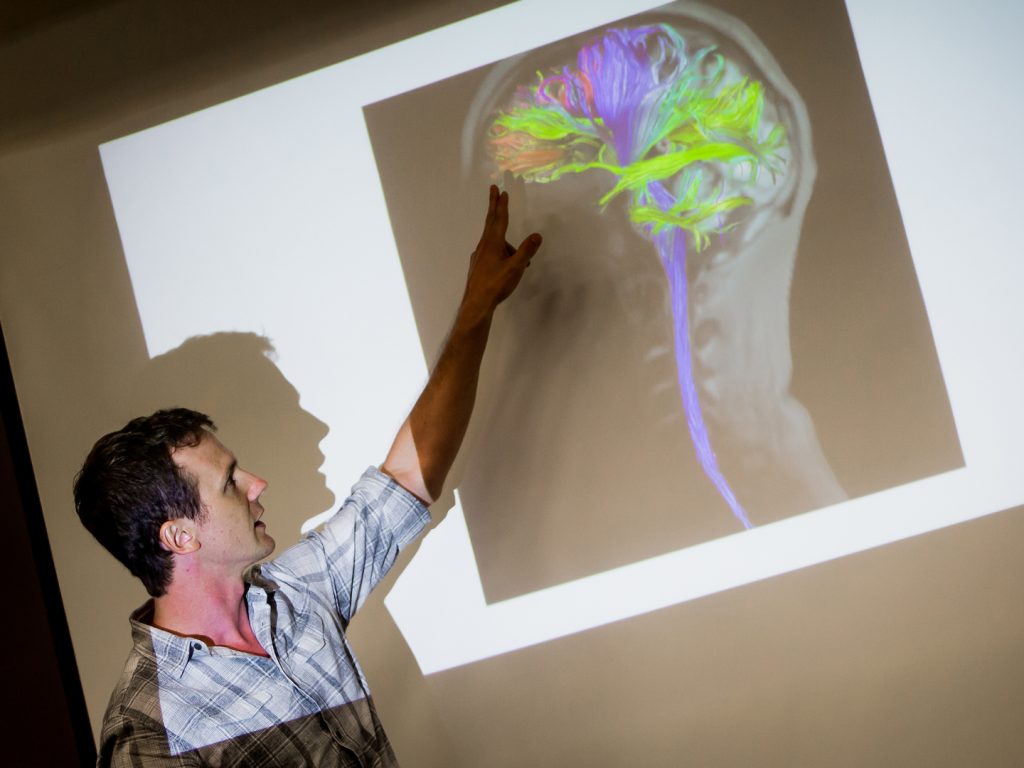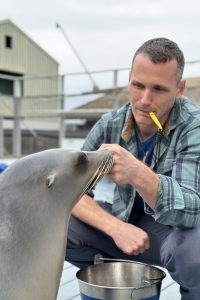Neuroscience, a rapidly growing field here at New College, is a secondary area of study where you’ll learn how the nervous system communicates signals, produces behavior, and underpins complex perceptual and cognitive processes from the cellular to systems level.

About the Neuroscience Area of Concentration
Through the Neuroscience curriculum, you will discuss and critically assess cutting edge science, learn a wide set of technical skills in the laboratory, and design experiments to test ideas about the brain. Some of the course offerings include “Advanced Topics in Cognitive Neuroscience,” “Sex, Gender, Mind, and Brain,” “Neuroscience of Sport and Exercise,” and “Neuroethology”. You will get hands-on experience and develop career-ready skills with labs in Neurobiology, Comparative Brain Connectivity, and functional Neuroimaging.
The neuroscience faculty are an interdisciplinary group of scientists and scholars who study a variety of topics across different model systems – e.g., how the brains and vocal organs of frogs solve the complex task of courtship, the impact of environmental toxins on sea lion brain networks, and endocrine correlates of human social behavior. Neuroscience students have unique opportunities to work collaboratively with faculty in their labs to be a part of the ongoing science. In the process, students develop skills and experiences necessary to pursue graduate research and other careers, including the opportunity to present the results of their research at conferences and through scientific publications. Our students have had numerous internships and prestigious summer research opportunities at laboratories and research stations far and wide.
Featured Course
BIOL 3200
Neurobiology
This course emphasizes the study of the nervous system at the cellular and molecular levels of organization. We will cover how the cells of the nervous system encode stimuli, transmit information, perform computations, generate behavioral outputs, grow, and develop. We will build on foundational knowledge of neuron structure and function towards understanding how neurons and small neural circuits achieve complex functions.
Recent courses
|
|
Career Pathways
- Research
- Medicine
- Psychiatry
- Psychology
- Law
- Education
- Scientific Journalism and Media
Contact Us
Neuroscience Faculty
Dr. Peter Cook
Associate Professor, Marine Mammal Science

